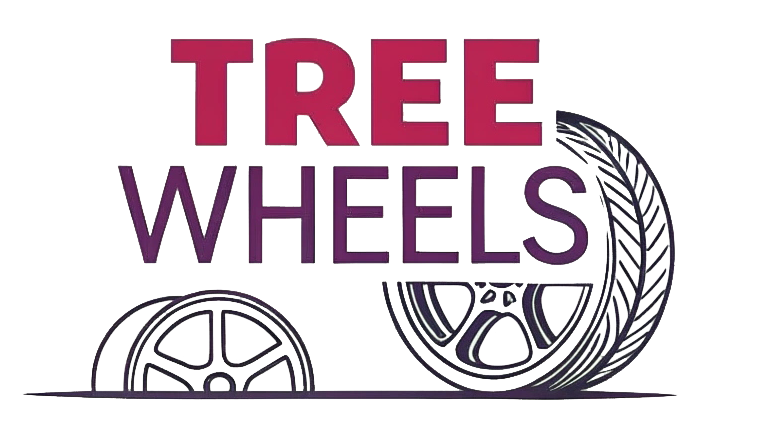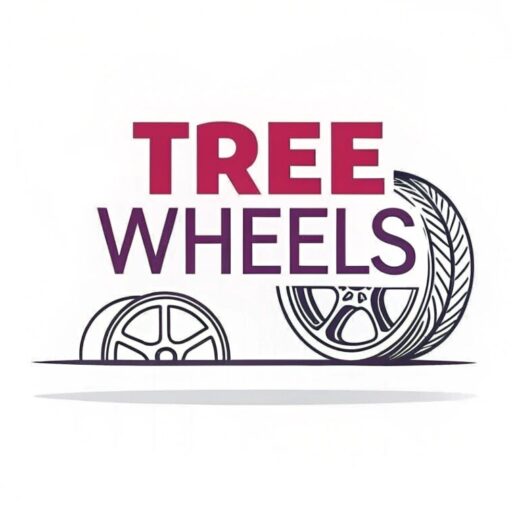When it comes to custom car rims, many car owners wonder if they can simply choose any set and fit them on their vehicles. Can any rims fit on any car? The short answer is no. The compatibility of custom-made rims depends on specific vehicle parameters.
Custom rims can be tailored to fit most cars, but proper specifications are crucial for a perfect match. If the size, offset, bolt pattern, and center bore are not correctly matched, the rims might not fit at all, or they could affect your car's performance and safety.

While it might seem simple to find a set of rims that fit your vehicle, there are some important considerations to keep in mind. Every car has specific requirements that must be met for a rim to fit correctly. When customizing rims, it's essential to know your car’s specifications. For example, getting the right size, offset, bolt pattern (PCD), and center bore ensures the rims work properly. Without these details, you might end up with rims that look great but don’t fit or function as they should.
Can any rims fit on any car?
One of the most frequent questions I get from customers is whether any rims can fit on any car. The idea that all rims are universal is a common misconception. Car rims are not one-size-fits-all. They need to be matched with the car’s specific measurements, like the bolt pattern and offset.
No, rims are not universal. They need to be matched with a car's specifications for a proper fit. If these factors aren’t aligned, you could face issues like wheel misalignment or even damage to the car.

Rims are designed to fit specific models of cars. When selecting rims, you must consider various factors like the vehicle's make, model, and year. The size of the rims also plays a significant role. For example, a 17-inch rim will not fit a car designed for 20-inch rims without adjustments. Even if the rim’s diameter is correct, the offset (how the rim sits in relation to the hub) must also be right for it to fit perfectly. Getting the wrong offset can lead to handling issues, as it affects the alignment of the car.
Do universal rims fit any car?
You might have heard of “universal rims” in the market, claiming to fit any car. While these rims are marketed as universally compatible, the reality is a bit more complicated. These rims are designed to fit a wide range of vehicles, but there’s still a chance that they won’t work for your car.
Universal rims are designed to fit multiple cars, but not all of them. The truth is, while they might fit a broad spectrum of vehicles, they often require adapters or modifications to make them work for certain cars.

Universal rims typically come with adjustable bolt patterns or adapters that can be altered to fit different cars. However, this doesn’t mean they’ll always work without issues. Even with the right adapters, you still need to consider the offset and center bore. If these elements are off, you might find that the car’s handling and safety are compromised. In the end, a universal rim might not always be the best option for your car’s performance.
Are rims vehicle specific?
Yes, rims are vehicle-specific. While it might be tempting to think that rims are interchangeable, each car is designed with specific parameters in mind. These include the size, offset, bolt pattern, and center bore of the rims. These elements must be carefully matched to your vehicle to ensure a proper fit.
Yes, rims are vehicle-specific. If you don’t match the right specifications, the rims won’t fit, and you may encounter issues with installation or performance.

When selecting custom rims, it’s vital to know your vehicle’s specifications. Not all cars share the same bolt pattern or offset. Even a slight variation can prevent the rim from fitting properly, leading to alignment problems. A proper fit ensures better handling and avoids putting unnecessary strain on other parts of the car, like the suspension or brakes. This is why custom-made rims are so important—they’re made to fit your vehicle perfectly and enhance its performance.
Can I replace my 18 inch rims with 20 inch rims?
Replacing 18-inch rims with 20-inch rims is possible, but it requires careful consideration. The main factors you need to think about are the car’s suspension and clearance, the offset, and whether the larger rims will affect the car’s overall handling.
Yes, you can replace 18-inch rims with 20-inch rims, but make sure your car’s specifications allow for it. Larger rims can affect your car’s ride quality and handling if not properly matched.

When upgrading to larger rims, there are a few things to keep in mind. First, you need to check if the new rims will fit within your car's wheel wells without causing rubbing or interference with the suspension. Larger rims typically require lower-profile tires, which can affect ride comfort and handling. Additionally, the offset and bolt pattern must still align with the new rims to ensure proper fitment. Before making the switch, it’s best to consult with a professional to ensure that the new rims will work with your vehicle without causing problems.
Rims Compatibility Table
To make it easier for you to understand what parameters must be matched when selecting custom rims, here's a simple table:
| Specification | Importance | Notes |
|---|---|---|
| Size | Ensures the rim fits the wheel well | Correct size is critical to avoid rubbing or performance issues. |
| Offset | Determines how far the rim sits from the hub | Affects handling and suspension performance. |
| Bolt Pattern | Ensures the rim bolts up correctly to the vehicle | Must match the vehicle’s specific bolt pattern (PCD). |
| Center Bore | Ensures the rim centers on the hub properly | Incorrect center bore can cause vibrations or poor fitment. |
Conclusion
In summary, custom rims can be a great way to enhance the look and performance of your car, but not all rims will fit every vehicle. Accurate specifications are key to ensuring a perfect match. At Tree Wheels, we specialize in custom rims designed to fit your car’s unique requirements.



